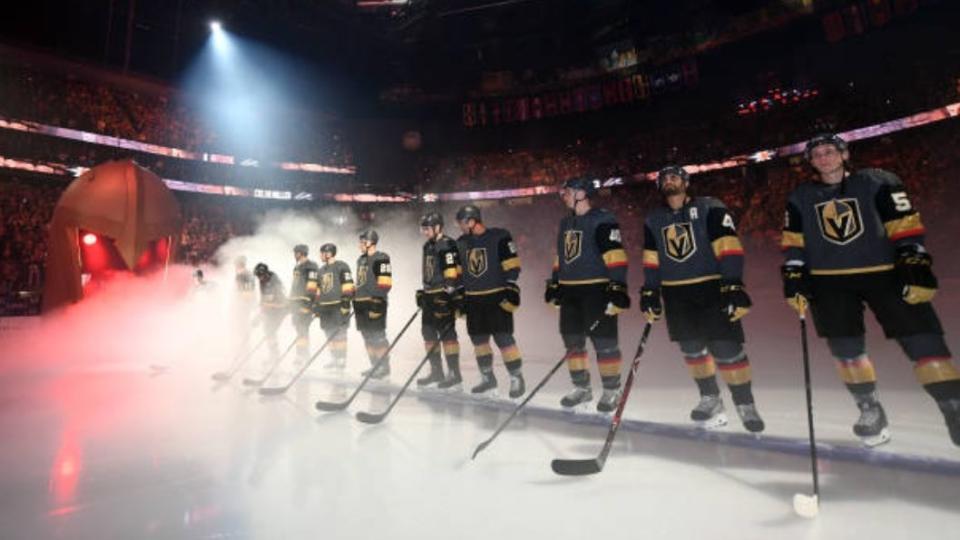Expansion will only make the NHL more entertaining
In the immediate wake of the Seattle expansion announcement, TSN Hockey posed a perfectly legitimate question: “Would the addition of a 32nd team water down the NHL’s talent pool?”
Not surprisingly, it ended up being a bunch of Gen Xers saying, “I wish there was fighting still,” and bemoaning the lack of supposed passion that led to people trying to kill each other off the opening faceoff. And also that Seattle got a team over another Canadian city.
They never got around to answering the question, so I’ll do it for them: Yeah, a 32nd team necessarily waters down the talent dispersal across the league, but that’s probably a good thing.
I mean let’s be honest: The way older people talk about the NHL being great back in the 1970s and ’80s, because there was so much scoring and everything? That was because the league expanded rapidly in the late ’70s, adding four teams in a single season from the WHA. And in the early and mid-1990s, the league added five more teams in the space of just a few years, waited a bit, then added four more. That’s a lot of rapid expansion, for sure, but it’s worth noting that the league is being much more cautious about this.
I think a lot of people have bad memories of horrible early Sharks and Lightning and Senators teams and (rightly) see Vegas as being an aberration. That stuff happened in living memory; I mean, the Sharks are barely older the Gabriel Landeskog.
But look at how Vegas came together: The NHL ensured this would be a competitive team by giving them favorable expansion-draft rules and Seattle will receive the same. If you don’t think the average NHL team can’t absorb the loss of two of its, say, 10th-best players four years apart and replace those guys with two high-end AHL talents, I honestly don’t know what to tell you.

Yeah this is the league adding 46 jobs in four years — therefore expanding the definition of what constitutes “NHL talent” by like 7 or 8 percent — but again, if you liked hockey because of all the goalscoring in the ’80s, well, thinning out the talent pool is good because it means elite players will score more often.
Especially because teams are a hell of a lot smarter now than they were in 1992 or whatever. The guys they would have added when, say, Nashville or Minnesota came into the league were far, far, far more likely to be the kind that would do a lot of punching and play five minutes a night. And if not, they were probably seen as defensive specialists (whether defensemen or forwards) and most teams weren’t calling up the best scorer from their AHL teams because they didn’t think there were enough Scorer jobs to go around.
These are who-cares players that frankly don’t exist in the game today. Now, teams will call up their best, fastest, most skilled AHL guys to replace the ones they lost to Vegas and Seattle. Those guys will bring some danger to the offensive end, but at the same time, they’ll also be guys who are high-end AHLers because they have holes in their game that NHLers will be able to exploit. Which, again, means more scoring. Which is all anyone over the age of 40 ever complains about in this league.
In the past I wouldn’t have said that there’s enough talent to fill out two more teams in a four-year period. But because of what the NHL now considers NHL talent, there is. Coaches are more willing to let guys with flawed games work those flaws out for 12 minutes than give some guy who can’t skate six.
Plus, with two more teams working to nurture talent, it’s only a matter of time before they’re likewise just identifying and developing guys who we will just consider NHL talent five years down the line, right? By the time 2005-06 rolled around, no one was looking at the bottom of the Canadiens’ roster and saying, “Yeah but that guy wouldn’t even be in the league if they hadn’t given Columbus a team.”
Most of the leading scorers in the AHL these days are guys in their mid-20s who have 50-plus games of NHL experience anyway; it’s not the Darren Haydar and Keith Aucoins — who could speedbag Triple-A talent but only ever really get cups of coffee in the bigs — of the hockey world anymore.
And NHLers are getting better all the time. You can probably count on one hand the guys who were multi-time All-Stars in the late ’80s and early ’90s who would still be All-Stars in today’s game. So the guys who were coming into the league after expansion drafts back then were without a doubt significantly worse than the ones who will in 2021.
The guy who’s, whatever, the 700th-best in the world right now is probably a lot better than the one who was 450th back then. Sad but true.
So yeah the talent level is being watered down, but not as badly as you probably think and almost certainly to the betterment of the sport as an entertainment product.
Seems like a net positive to me.
Ryan Lambert is a Yahoo Sports hockey columnist. His email is here and his Twitter is here.
All stats via Corsica unless otherwise noted.

 Yahoo Sports
Yahoo Sports 
